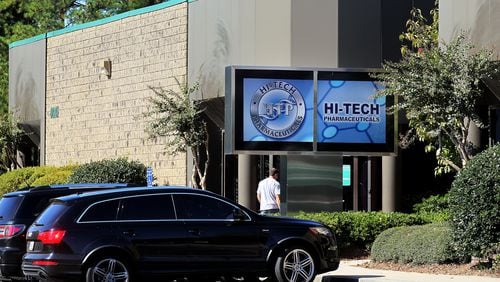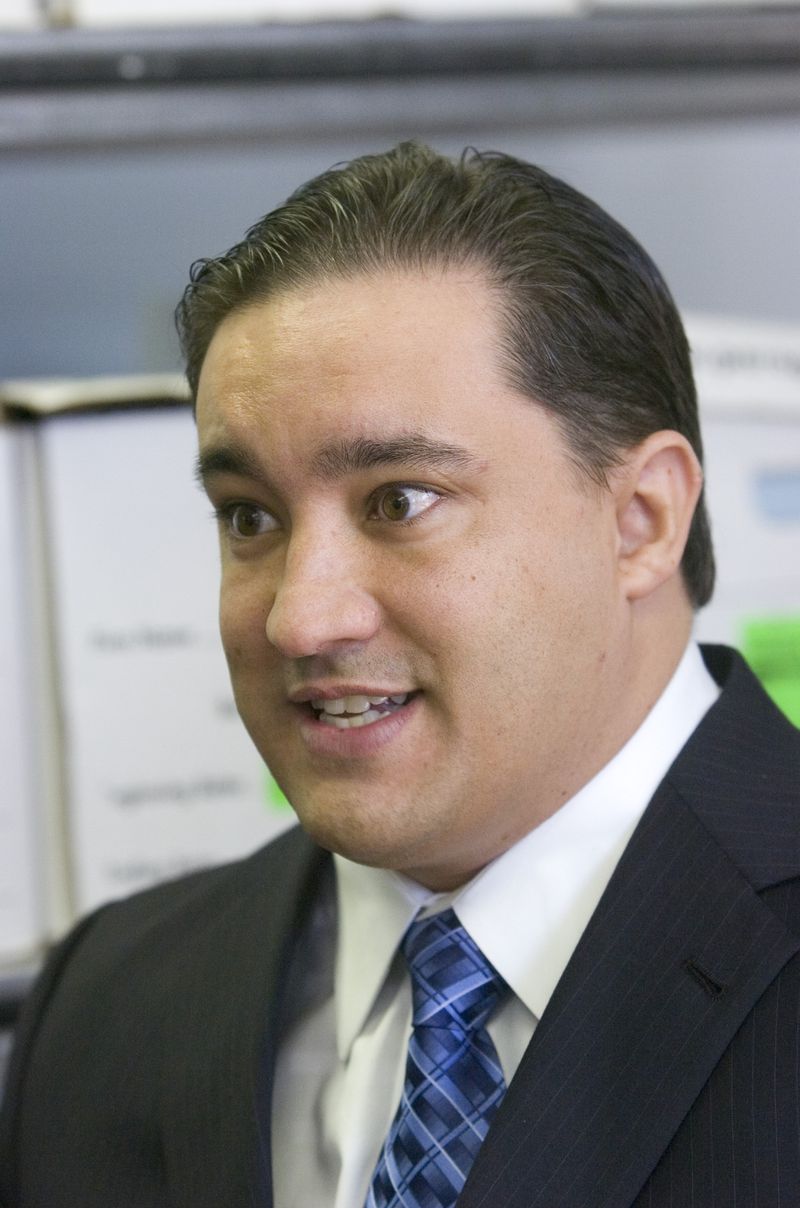The litigious world of Jared Wheat has turned again, this time in a federal courtroom in Boston, and the outcome wasn't what the Atlanta dietary supplement entrepreneur had hoped for.
Credit: Lois Norder
Credit: Lois Norder
For seven days last fall, a jury heard testimony over Wheat's claim that a Harvard professor had libeled his company, Norcross-based Hi-Tech Pharmaceuticals Inc.
But it took less than three hours for the jury to rule in favor of the professor, who had called Hi-Tech out in a research paper for selling weight-loss products containing an amphetamine-like stimulant.
The verdict reaffirmed an opinion by the U.S. Food and Drug Administration that several Hi-Tech products couldn’t be marketed as supplements because they contained a synthetic compound.
The background:
Pieter Cohen, an assistant professor at Harvard Medical School, published a scientific paper in April 2015 reporting that he had tested 21 dietary supplements labeled as Acacia rigidula, a shrub that grows in Texas and Mexico, and found that 11 contained a stimulant known as BMPEA. Six of the 11 were products developed and sold by Hi-Tech.
Cohen’s findings, published in the journal Drug Testing and Analysis, were significant because the FDA had previously reported detecting BMPEA in some unidentified Acacia rigidula products but not in the plant itself. In other words, BMPEA likely was something cooked up in a lab and thus not compliant with federal regulations regarding supplements.
Noting that the efficacy and safety of BMPEA had never been studied in humans, Cohen wrote that the ingredient's health effects were unknown and consumers should be wary.
Two weeks after the research was published, the FDA sent Hi-Tech and other companies identified in the article warning letters ordering them to stop selling the products.
In response, Hi-Tech sued Cohen for libel and slander in federal court, contending that the company’s Acacia rigidula products were indeed derived from the shrub and that the plant’s extracts had been deemed safe through human trials. The suit initially sought $200 million in damages; a later version did not specify an amount.
The case went to trial in late October and ended Nov. 1 with the jury ruling that Cohen’s paper wasn’t defamatory.
You can read all about it in a lengthy article published last week by STAT News, an online publication that reports in depth on issues related to health, medicine and science.
Wheat told writer Rebecca Robbins (no relation to this reporter) that he spent between $300,000 and $400,000 of his company’s money to pursue the case but has no regrets.
“I spent a lot of money, but hopefully it will deter others from going out there and making baseless allegations,” he was quoted as saying.
He added that he believed his case was hampered because he had to make it in Massachusetts, where the jury pool might have a bias toward a local professor. The suit was initially filed in Georgia, but it was dismissed by U.S. District Judge Steve C. Jones because Cohen didn’t do his research in the state.
Wheat told STAT News that the supplements in question are still for sale but with a slightly different chemical makeup.
Wheat has a long history of suing federal regulators and other companies and in fact is still involved in litigation with the FDA over its seizure more than three year ago of products containing another potentially dangerous stimulant, DMAA.
The FDA seized more than $2 million worth of goods and raw materials from Hi-Tech in November 2013 after The Atlanta Journal-Constitution reported that the company had continued to sell products with DMAA despite the government's effort to purge it from the market.
After the seizure, Wheat sued the FDA, asserting that DMAA is in fact a natural ingredient found in geraniums and that the agency had engaged in a “campaign of intimidation” against Hi-Tech and other supplement companies selling products using the stimulant.
About the Author








